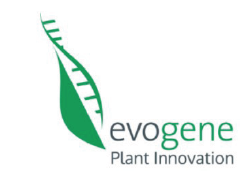 Patrik Jones is the group leader of the Microbial Metabolic Engineering lab at the Imperial College London. His lab aims at engineering metabolic solution to convert CO2 into biomass and other sustainable chemicals that can replace less sustainable products. We asked him to share his point of view on sustainability.
Patrik Jones is the group leader of the Microbial Metabolic Engineering lab at the Imperial College London. His lab aims at engineering metabolic solution to convert CO2 into biomass and other sustainable chemicals that can replace less sustainable products. We asked him to share his point of view on sustainability.
“A major problem in sustainability today is that we still rely on fossil fuels for most of our human activities. A major leap will only happen if we fully replace fossil fuels with alternatives that match different points of view: the financial feasibility, the long-term sustainability for the environment, the energetic return and the efficient use of resources.
As of today, fossil fuels are still the cheapest option compared to biofuels from cyanobacteria or other microorganisms. The production of biofuels is technically feasible but not financially competitive. In some cases, it also competes for valuable resources, such as agricultural land, water and nutrients, and therefore, we need to carefully design future biofuel production systems so that they can be sustainable in all dimensions, incl. financial, energetic and environmental.
As a palliative, commercial biotechnology is currently focused on the production of other more valuable products for which no cheap alternatives exist e.g. fragrances, food additives, pharmaceuticals, etc.
But, the real problem, the fossil fuels, remains. We have got used to low fuel price tag as it doesn’t include the indirect costs of fuel production and consumption on society and on the environment. To quantify in money the impact of pollution and climate change on society it’s hard but if we don’t, we lose the other side of the coin.”
FURTHER READINGS:
Climate change and the 75% problem – gatesnotes.com – Bill Gates
The real cost of energy – Nature – Erica Gies
IMF: ‘True cost’ of fossil fuels is $5.3 trillion a year – pri.org – Adam Wernick






